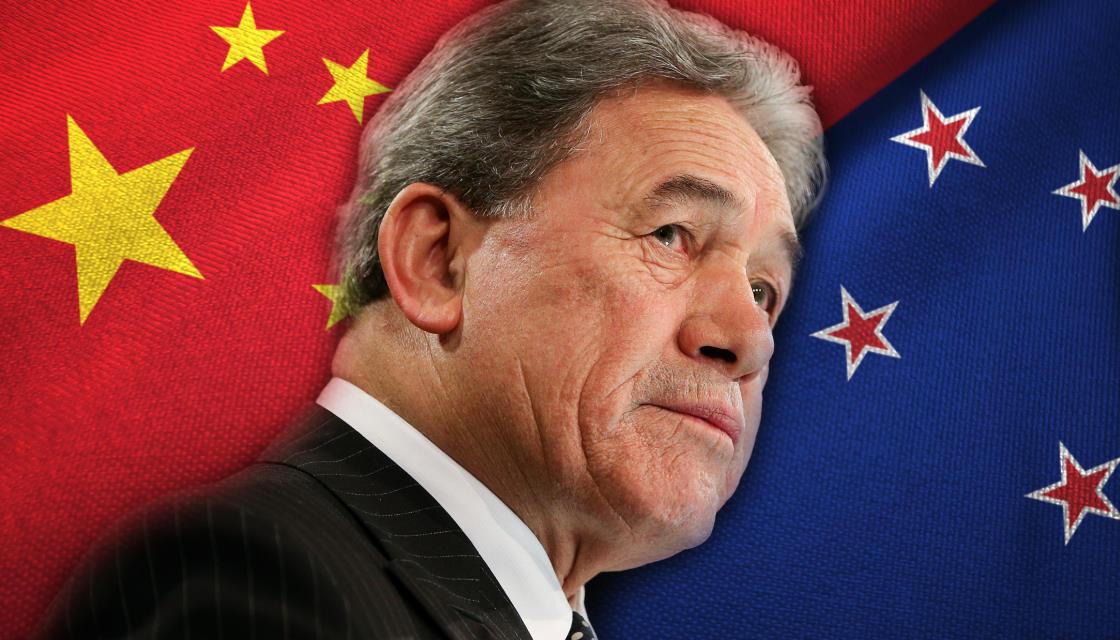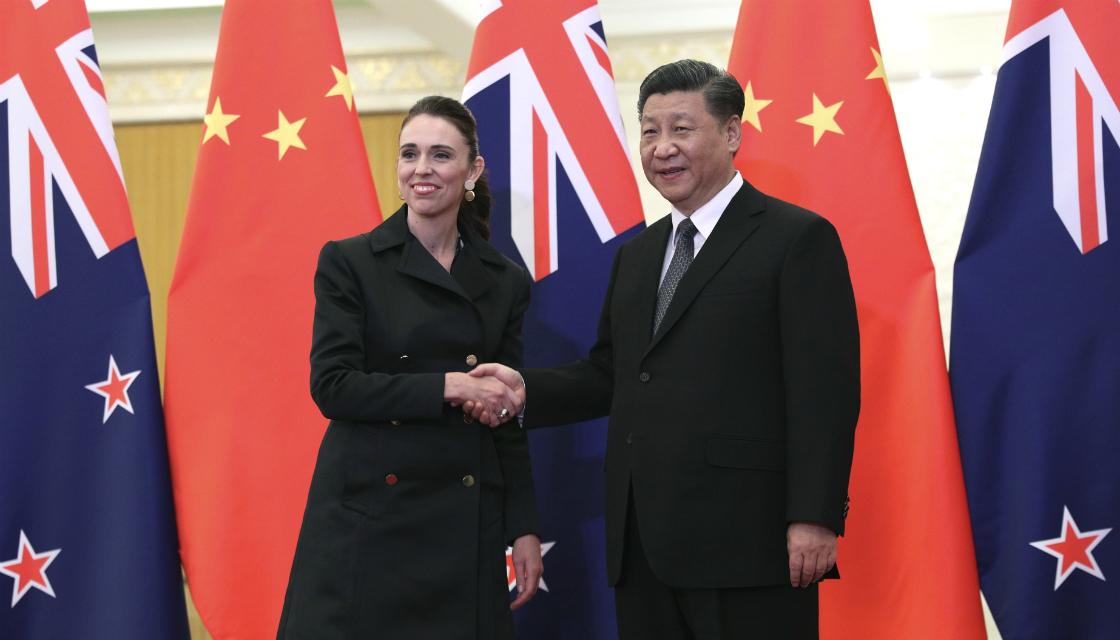The Chinese Government has escalated its use of "coercive diplomacy" over the last two years, with New Zealand among its targets, according to a new report by an Australian think tank.
The Australian Strategic Policy Institute's new report titled 'The Chinese Communist Party's coercive diplomacy' looks at how China has used coercive diplomacy against foreign Governments over the last 10 years, recording 152 cases of the tactic being used against 27 countries as well as the European Union.
The report says coercive diplomacy "can be defined as 'non-militarised coercion' or 'the use of threats of negative actions to force the target state to change behaviour'." It can be conducted through economic means - trade sanctions, tourism bans, boycotts - or non-economic measures, such restrictions on travel, state-issued threats.
Looking at English and Chinese information sources - such as news articles, research, social media posts and statements - the think tank says there's been a "sharp escalation" in the use of such tactics since 2018.
'Coercive diplomacy' against New Zealand
The report claims that New Zealand is among the countries and regions which have recorded the most instances of coercive diplomacy. However, the three cases the report alleges of such tactics being used against Aotearoa pales in comparison to the 17 against Australia or 10 against Canada.
The most recent of the examples of "coercive diplomacy" the report suggests China used against New Zealand is a "state-issued threat" after Aotearoa suspended its extradition agreement with Hong Kong in July.
New Zealand Foreign Affairs Minister Winston Peters announced in late July that in light of China's decision to impose a contentious national security law on the city of Hong Kong, New Zealand's extradition treaty with the financial hub would be suspended.
The legislation has been condemned by a plethora of countries for providing Beijing greater influence over Hong Kong's judicial system, including allowing those on trial in Hong Kong to be extradited to mainland China.
Peters said New Zealand could "no longer trust that Hong Kong's criminal justice system is sufficiently independent from China" and that the law "erioded rule-of law principles" and undermined the 'one-country, two systems' framework.
The think tank's report mentions how the Chinese Foreign Ministry's spokesperson Wang Wenbin strongly objected and noted that "China reserves the right to make further reactions".
Just days later, China would suspend Hong Kong's extradition agreement with New Zealand. Further into August, after the Five Eyes released statement expressing "deep concern" about the security law, China again hit back with a scathing statement.
- 'Absolutely no mercy': China's brutal detention regime revealed in leaked documents
- Belligerence China
- China Ambassador Wu Xi warns New Zealand to stop prying into its 'internal affairs'
- China essentially treats Australia ‘like a shopping mall’
The report's other two examples relate to February 2019.
It cites media reports that Prime Minister Jacinda Ardern's visit to China had been postponed after the Government Communications Security Bureau (GCSB) warned Spark against using Huawei technology in its 5G network. The third case was the delay to the 2019 China-New Zealand Year of Tourism campaign, which the report says also came as a result of the Huawei decision.
The report notes that Chinese state-media at the time ran an article on how relations between the countries had soured after the Huawei warning and that "some Chinese tourists are considering dumping their plans to travel to New Zealand this year as a way to punish the country".
According to the Ministry of Business, Innovation and Employment, China had advised that the tourism event had to be postponed "due to a change of schedule on the Chinese side". Ardern told The AM Show in February 2019 that she wouldn't question that reason.
When asked if the GCSB's warning had offended China, the Prime Minister said there was "no doubt our relationship with China is complex, there is no doubt the relationship comes with its challenges, as our relationships with a range of countries will from time to time".
Ardern did visit China months later and the Year of Tourism event also eventually went ahead

Trends and recommendations
Overall, the data gathered for the Australia report found state-issued threats were the most common method of coercive diplomacy used by China to target foreign governments between 2010 and 2020. Australia, Canada and the US were the most targeted by China.
It also found the divide between countries targeted and not targeted by China reflected the divide between high income and middle/low income countries as defined by the World Bank. Countries that had defended China's treatment of the Uighur people in Xinjiang were also not targeted.
With China being the largest trading partner for many countries - including New Zealand - the nation had "significant leverage", according to the report.
"The impacts of coercive diplomacy are exacerbated by the growing dependency of foreign governments and companies on the Chinese market. The economic, business and security risks of that dependency are likely to increase if the CCP can continue to successfully use this form of coercion."
It states that China has always argued its actions are proportionate "to its pursuit of protecting core national interests" and that coercive diplomacy is used by the West and by the Chinese public, not the government.

But the report also highlights how Chinese state-run think tanks and media have "explicitly encouraged the use of coercive diplomatic tactics".
The report concludes by saying that coercive diplomacy will likely continue to be used against foreign governments and companies.
It offers five recommendations:
- Increase global situational awareness of coercive diplomacy
- Response via coordinated and joint pushback
- Establish a Five Eyes collective economic security pact
- Develop protocols in collaboration with the business community to counter coercive measures targeting companies
- Factor in the heightened risk of doing business and building economic relations with China.





